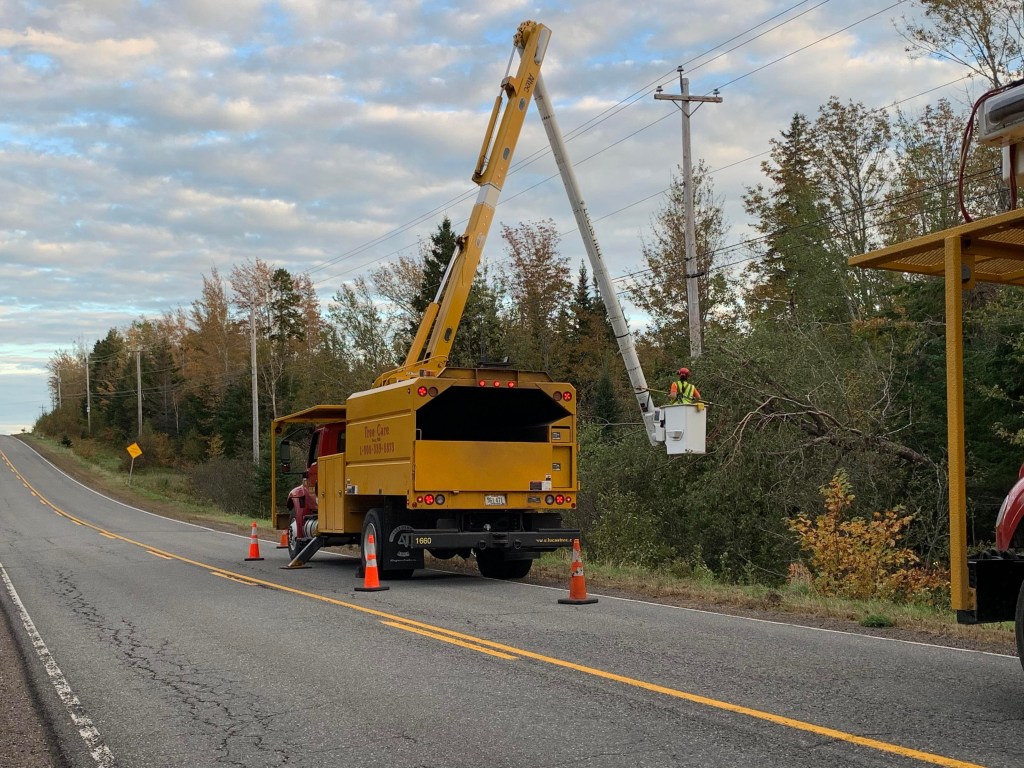
“We are grateful for what we have, but we need more,” said John Lohr, the minister responsible for the Office Emergency Management. “We have sent Public Safety three separate requests. During Dorian, if my memory is correct, we had 475 troops in the field. In my opinion, this is twice the storm that Dorian was.”
Premier Tim Houston noted there are 10,000 military personnel stationed in Nova Scotia and he suggested most would be willing to help out, if assigned to the job.
Houston said “everyone would like power to be restored faster,” but the destruction is spread over a large area with thousands of trees that still need to be removed before homes and businesses can be reconnected. Houston was scheduled to have a briefing with Nova Scotia Power this afternoon.

Evidence given at a hearing before the Nova Scotia Utility and Review Board (UARB) this month suggests residential consumers will be looking at rate hikes in the vicinity of 6.5% in each of the next two years to cover the cost of service. That’s separate and apart from whatever plan is approved to recover hundreds of millions of dollars in higher than expected fuel costs and storm costs.
The premier continues to say he does not support a rate hike at this time but today — in response to a reporter’s question — he would not commit to introducing legislation this fall that would change the rules or “the dynamic between the UARB and its oversight of Nova Scotia Power.”
What Houston said was, as usual,” the government is considering its options and everything is on the table.”
But unless the governance model changes — the legislation proposed by the NDP was rejected by the Conservatives — there doesn’t appear to be much the province could do to overrule a decision made by a quasi-judicial body appointed to adjudicate what’s a reasonable cost to pay for electricity.
No response from the telecomms
Houston said he is “hopeful” the Trudeau government will take his concerns about the failure of 911, which is provided by Bell, seriously, and the failure of cellphone communications provided by Bell, Eastlink, Telus, and Rogers in the aftermath of a major storm that left consumers frustrated and vulnerable. He was reminded that his predecessor, Stephen McNeil, made the same complaint to Ottawa following Dorian in 2019.
“This failure was not an inconvenience,” Houston said. “This was an impediment to the early steps of recovery, which made it difficult to check on people. I would have liked to hear the telecomms say they could do better, and to say they were sorry.”
So far, the premier said all he has heard are valid complaints from citizens that prompted his letter yesterday to the federal minister for communications. Last night during debate in the House of Commons, deputy Prime Minister Chrystia Freeland said the lack of service by telecomms was “completely unacceptable.”
The CRTC, which has the authority to regulate the performance of these companies, is also looking for explanations.
Last but not least, reporters learned today it will be the first half of 2023 before the Conservative government expects to implement regulations under the Coastal Protection Act. Among other things, the regulations would discourage people from building in areas vulnerable to storm surge or flooding as the climate changes. Environment Minister Tim Halman said the government needs time to “get it right” and work with municipalities, which will be partners in this endeavour.
“That act needs to be in place ASAP,” said deputy NDP leader Susan Leblanc. “We’ve been talking for years and I’m disappointed this is going to take so long. We need to be ready for the next storm.”
Liberal leader Zach Churchill told reporters “we have to start budgeting for emergency situations like this instead of treating them as ad hoc situations where we add an infusion of money at the time. We should set aside a fund for emergencies and disaster relief.”
Subscribe to the Halifax Examiner



We have many other subscription options available, or drop us a donation. Thanks!
